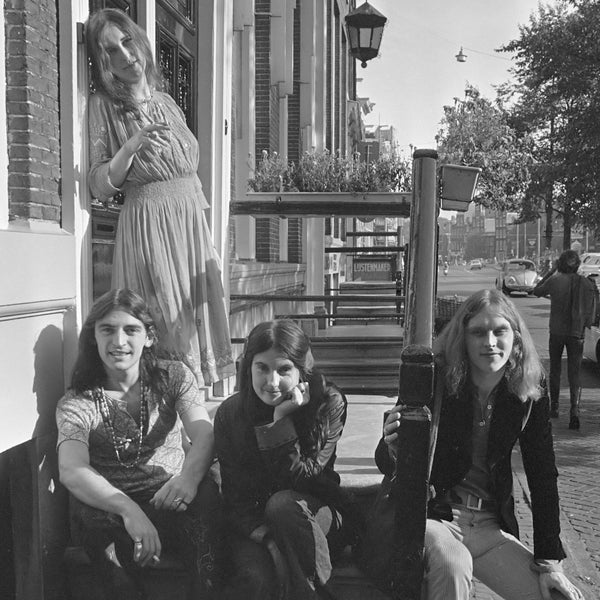Few musical combos exemplify the free-thinking Hippy ideal of the late sixties counter-culture more definitively than The Incredible String Band. Musically, they bound together a variety of contrasting and complementary strands, from bucolic British and Irish Folk, through to Eastern raga, and, as they moved on, American Roots music, suffused with a sense of whimsy and the contemplative that spoke of a world and a potential way of living that was way beyond the workaday milieu. True, their seemingly blissed-out vibe would run contrary to the churn and tumult of Revolution as 1967 - the Year of Psychedelia – gave way to the bruising, harder realities of the end of the decade but the music that they made has proved remarkably resilient and vivid, even over half a century since it was first minted in those Edenic times.
The core of the ISB was the duo of Robin Williamson and Mike Heron both born in Edinburgh in 1943. Between the two, they played guitar, sitar, percussion, finger cymbals and all manner of outré other instruments. What had initially been an acoustic folk group (originally a trio with the now-departed Clive Palmer) had become a sophisticated melange of English folk music and instruments from around the world. While the ISB was not to everyone's taste, they were surely one of a kind. Williamson and Heron never collaborated on the writing of songs; this leant an unusual quality to their recordings. Apparently, the two didn’t share all that much in terms of commonality, with differing, distinct personalities and ideas.
Williamson’s compositions could be less formal and structured, often rambling and diffuse; Heron, on the other hand, opted for more conventional verse / chorus song frameworks, but was unafraid to mix up seemingly unrelated imagery into a song to get a kaleidoscopic and startling result. It made for a heady musical mix, that really came into a different mode when performed live.
Late in 1966, the ISB toured the UK with American roots performers Tom Paxton and Judy Collins, (both Elektra Records label-mates). Collins who was so impressed by the band’s ‘First Girl I Loved’, that she covered it, changing the gender to ‘First Boy I Loved’, and released it in December, 1968 on her ‘Who Knows Where The Time Goes’ album.
The ISB had played the famous Newport Festival in 1967, and finally got to tour the USA in the summer of 1968, initially supporting the Grateful Dead at SUNY Stony Brook gym on May 4th, 1968, as well as playing shows with Country Joe & The Fish, and Tim Buckley.
The legendary Fillmore East concert promoter Bill Graham, was, in his own way, carefully constructing his ‘brand’, as it were, that of being a strong supporter of causes dear to the hearts of the US counter-cultural community, so he lent out the Fillmore East on weeknights for appropriate causes. WBAI-fm (99.5) was part of the Pacifica Radio Network (which includes KPFA-fm in Berkeley), and as a result it depended on listener support rather than advertisements. The station held a fundraising benefit at the Fillmore East on Wednesday, June 5. There were probably other performers, probably including some music, but the Incredible String Band were the headliners. More importantly, WBAI taped the performance and broadcast it on March 23, 1969. It became a much-bootlegged recording.
In Joe Boyd’s autobiographical work, ‘White Bicycles’, he observed that the ISB never really broke out of the Hippie / College circuit in the USA. They lacked the discipline for the ‘bread and circuses’ of mainstream rock and roll shows, and as such probably tried the patience of those music fans who needed a sense of reassurance offered by a predictable ‘don’t bore us / get to the chorus’ approach. That being said, their out-there qualities, and the creation of a musical world – with its own musical language and cast of characters – separated, and continues to separate the Incredible String Band from their contemporaries and just about anything else that has surfaced since. There is truly nothing quite like it.
With thanks to Alan Robinson

